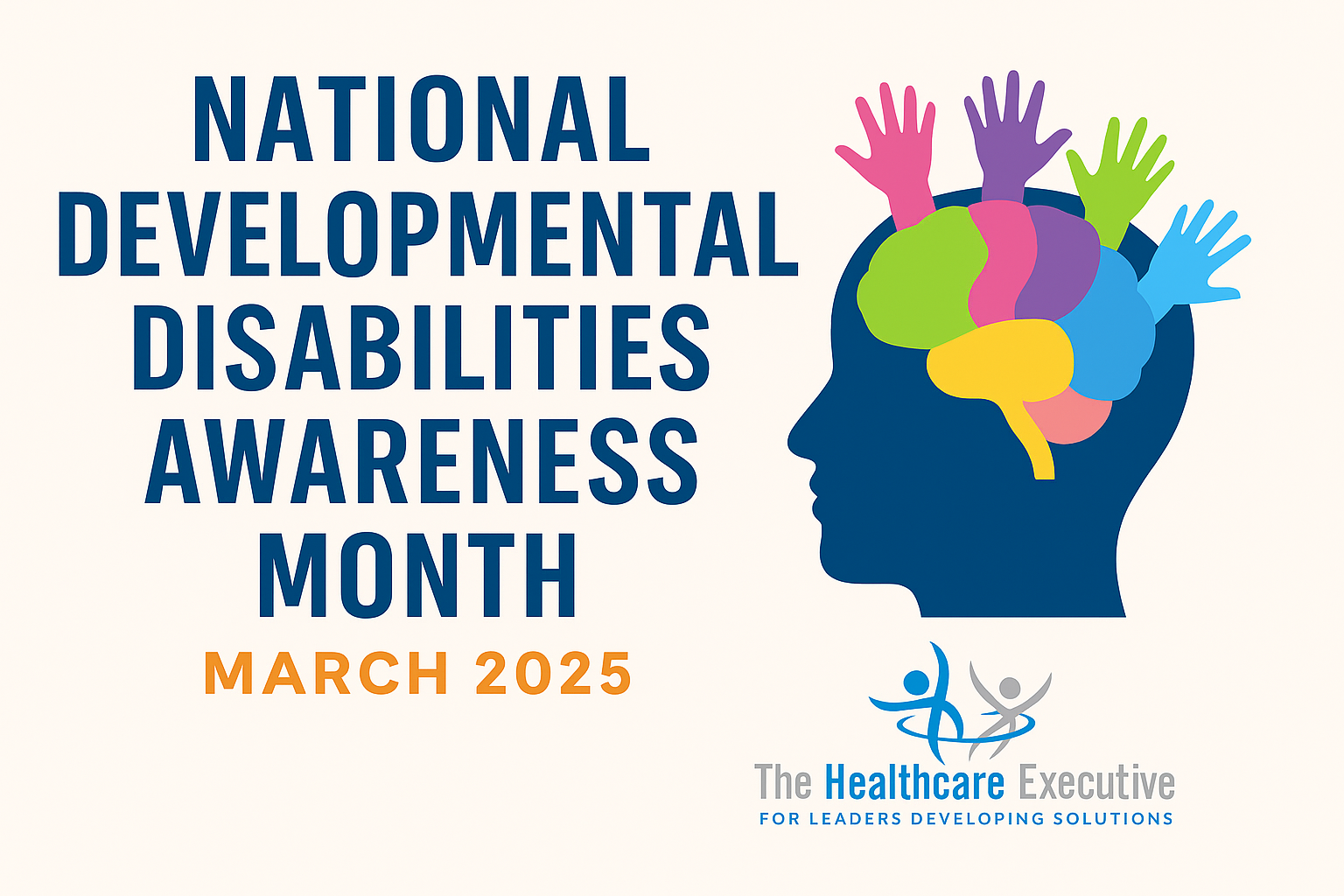National Developmental Disabilities Awareness Month 2025: A Leadership Imperative in Inclusive Care

- Posted by Greg Wahlstrom, MBA, HCM
- Posted in Health Observance Calendar
How Executives Can Expand Equity, Accessibility, and Respect Across the Continuum
Published: March 5, 2025
National Developmental Disabilities Awareness Month 2025 presents a critical opportunity for hospital executives to evaluate how systems meet the needs of patients and staff living with intellectual and developmental disabilities (IDD). According to the Centers for Disease Control and Prevention (CDC), approximately one in six children in the U.S. has a developmental disability, and the adult population is growing as care improves. At Kennedy Krieger Institute, inclusive practices range from sensory-friendly environments to specialized outpatient services. Executives must examine how facility design, language access, and clinical pathways include—or exclude—patients with developmental disabilities. Visibility begins with leadership accountability.
One of the most persistent challenges is care coordination. Individuals with developmental disabilities often require multi-specialty input including neurology, rehabilitation, psychiatry, social work, and education support. However, fragmented records, untrained staff, and limited care navigation can turn hospitals into barriers rather than safety nets. Mass General for Children offers a model of integrated developmental medicine where pediatricians, therapists, and behavioral specialists collaborate around each patient. Healthcare executives must prioritize funding for coordinated care teams, accessible records, and family-centered decision-making. In this case, continuity is equity.
Hospital workforce inclusivity must also be examined. Many healthcare professionals enter practice without formal training in disability communication or behavioral strategies. This often leads to care gaps, misunderstandings, and even medical trauma for patients. Organizations like UCLA’s UCEDD (University Centers for Excellence in Developmental Disabilities) offer continuing education modules that hospital CMOs and CHROs should adopt as part of annual staff development. At Cincinnati Children’s Hospital, disability simulation programs and peer mentoring have improved patient satisfaction scores and reduced adverse events. Executives must treat disability training as a standard—not a special project. Education builds safety, trust, and effectiveness.
Partnerships with community organizations create critical bridges. Executives should explore how their systems collaborate with disability advocacy networks, family support groups, and regional developmental service agencies. For example, Rush University Medical Center has co-developed therapeutic play programs with local autism and IDD nonprofits to enhance social-emotional development in outpatient care. These collaborations improve patient engagement, streamline referrals, and foster trust. Without strong community partnerships, hospitals risk operating in silos, disconnected from the real needs of their patients. Integration is both an ethical and operational strategy.
Finally, data transparency and executive benchmarking are essential. Developmental disability access metrics—such as screening rates, satisfaction levels, wait times, and follow-up compliance—must be part of hospital quality dashboards. Leaders at Children’s Hospital of Philadelphia have incorporated IDD-specific metrics into patient experience surveys and EHR tagging systems to close care gaps. CEOs and COOs must lead from the top, ensuring accountability frameworks support sustainable inclusion. Developmental Disabilities Awareness Month is not a checkbox—it is a chance to realign mission with measurable action. Inclusive health is strategic health.
Discover More on Inclusive Hospital Strategy
If your leadership team is advancing initiatives in access, experience, and community care, read our insights on executive strategies to rebuild trust and deliver equitable healthcare.
Internal Links
- Rebuilding Trust in U.S. Healthcare: A Leadership Blueprint
- The New Face of Healthcare Leadership: Inclusive Succession Planning Strategies
External Links
- CDC – Developmental Disabilities
- Kennedy Krieger Institute
- Mass General for Children – Developmental Medicine
- Cincinnati Children’s Hospital – Disability Services
- Rush University Medical Center – Pediatric Therapy
- Children’s Hospital of Philadelphia – Childhood Communication
- UCLA UCEDD – Training & Advocacy



